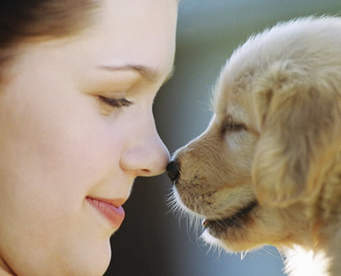The Aromatic Extracts




The Aromatic Extracts
In nature, essential oils can be found in either the seeds, roots, leaves, resin, bark or flowers of aromatic plants. in different plants they have ddifferent functions; for example, to protect from microbes or attract insects for pollination. They are most commonly extracted from the plant steam distillation. Plant material is put into a large vat. Steam is then forced through under pressure, condensed and collected as water. The essential oil collects on top of the water and is separated out.
Essential oils are also produced using solvent extraction, in which case they are known as absolutes. Essential oils are highly volatile, light weight and penetrative. They are easily absorbed through the skin or by breathing them in. Inhaling an essential oil brings it directly into the regions of the brain concerned with emotions and memory. The nervous system transforms the messages from the aromatic chemicals into physical responses in the body, such as the anti-inflammatory, relaxation or anti-allergic responses.
Essential oils are mostly produced from the fragrance and flavouring industries, which demand high yield and low cost and produce inferior quality oil. Essential oils suitable for therapeutic use are distilled with care, slowly and at a lower temperature, so more of the healing molecules remain intact.
Unfortunately, many essential oils are adulterated, usually by adding synthetic fragrances or cheaper essential oil with similar fragrance. This is especially true of the more expensive oils, such as rose or those in high demand, like French lavender.
The best way to guarantee you are using good quality oils is to purchase from a reputable supplier who is also a trained aromatherapist, who can tell you where the plant was grown or distilled, and guarantee botanical purity.
Reference: The Aromatic Dog : Nayana Morag
Natural Health Care for Pets




Natural Health care For Pets
Abcess
Put 1 drop of tea tree on the abscess. Then when the pus is discharged, put on 1 drop of lavender. Clean with salt water.
Anal swelling
Apply the following to the area on cotton wool:
| Chamomile 5 drops | |
| Tea Tree 5 drops | Diluted in 1 teaspoon vegetable oil |
Bad Breath
Add 1 drop of dill or aniseed to the feed. If the cause is gingivitis, try to get the following on to the gums with a toothbrush:
| Clove 1 drop | |
| Lavender 1 drop | Diluted in 1 teaspoon vegetable oil |
| Myrrh 1 drop |
Bronchitis
Apply niaouli or eucalyptus on a warm piece of cloth to the back and chest. Preferably, use a blend of 2 drops of each.
Burns and Scalds
As for humans - cold water followed by neat lavender oil, as soon as possible.
Catarrh
Treat as for Bronchitis
Coat in poor condition
Add one quarter teaspoon of the following blend to each feed:
| 1 tablespoon olive oil |
| 1 tablespoon wheatgerm |
| 5 drops carrot oil |
| 5 drops evening primrose oil |
Cuts and Bites
Bathe the area with a solution of salt water to which 2 drops of thyme have been added, then apply 1 neat drop of lavender.
Cysts
Apply 1 neat drop of lavender or tea tree.
Ear Problems
Drip the following formula into the ear as well as massaging around the ear.
| Tea Tree 1 drop | |
| Lavender 1 drop | Diluted in 1 teaspoon warm olive oil |
| Chamomile 1 drop |
Rheumatism
Massage the area with the following:
| Ginger 2 drops | |
| Rosemary 2 drops | Diluted in 30ml vegetable oil |
| Chamomile 5 drops |
Skin Problems
Apply the following oil to the affected area:
| 10ml Evening primrose oil | |
| 5 drops Lavender oil | Diluted in 30ml vegetable oil |
| 5 drops chamomile oil |
Reference: The Fragrant Pharmacy: V A Worwood
Bees





Bees
To make bees take to a new hive, blend the following essential oils together in a tablespoon of water, soak a piece of material in this and use it to rub the inside walls of the hive. Melissa essential oil is also good for this purpose. All these essential oils can be used on their own.
| Hyssop 1 drop |
| Fennel 1 drop |
| Thyme 1 drop |
Reference: The Fragrant Pharmacy: V A Worwood
Sheep






sheep
Mice are a problem in lambing sheds, but as mice hate peppermint grow some around the sheds as a border. When washing the pens down use as a final rinse a gallon of water to which 5 drops of peppermint oil have been added. You can also drop neat peppermint oil onto the straw, all around the edges of the pen. The peppermint seems to relax the mothers and makes the pen a pleasant place to be in. After, birth, give the sheep a drink made by adding 1 drop of yarrow oil to a liter of boiling water and allowing it to cool.
Reference: The Fragrant Pharmacy: V A Worwood

 How to resolve AdBlock issue?
How to resolve AdBlock issue?